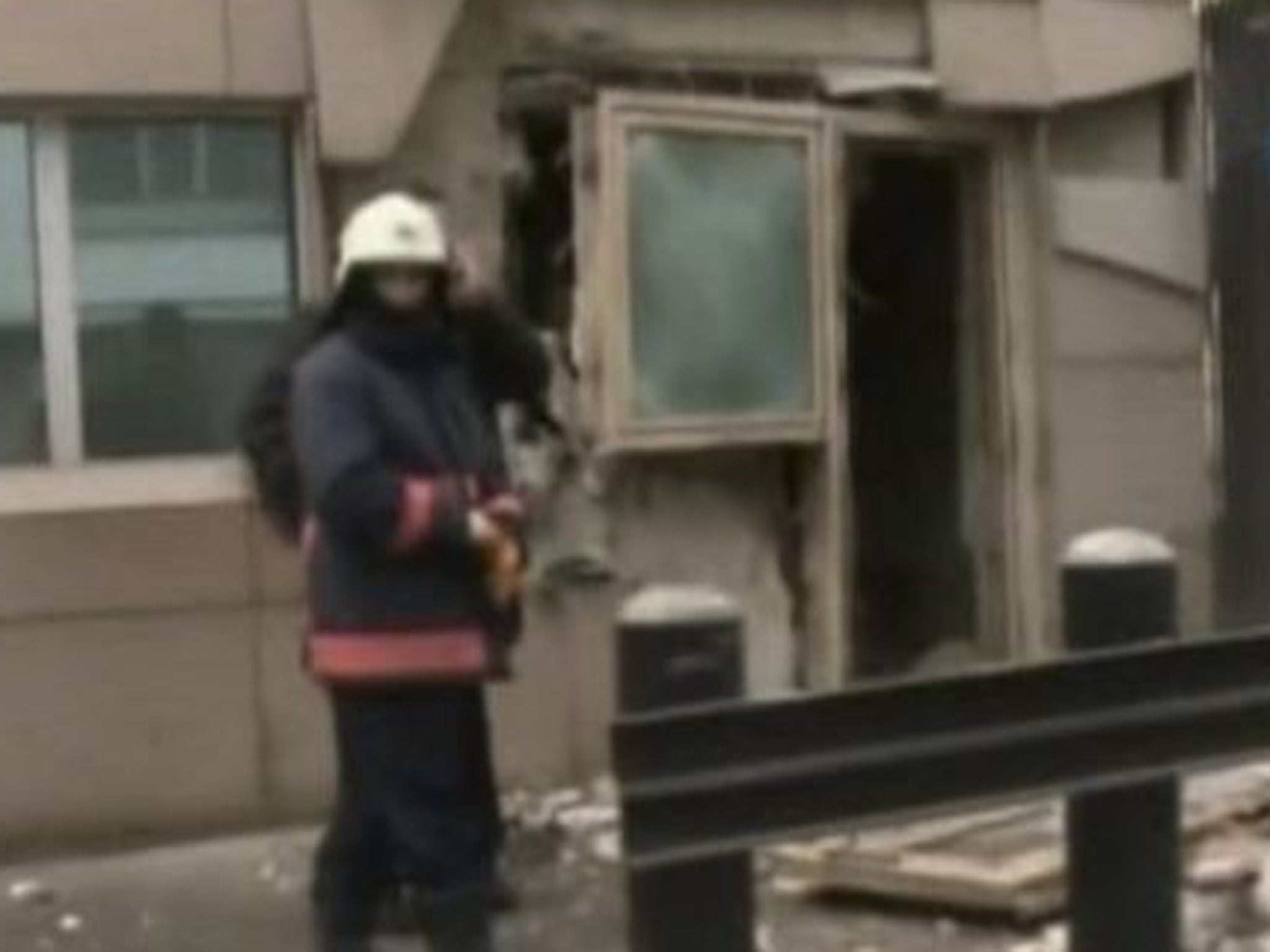At least two killed in suicide bomb attack on US embassy in Turkey

A suspected suicide bomber killed a security guard at the US embassy in the Turkish capital of Ankara today, in an attack the White House branded “an act of terror”.
The attacker detonated explosives next to the X-ray machine at the entrance of the visa section in the compound at about 11.15am GMT.
The blast destroyed the entrance and sent debris and shattered glass flying into the street of the upmarket residential area. A dense black column of smoke rose from the building. One person was injured and hospitalised.
The US Ambassador in Turkey, Francis Ricciardone, addressed reporters from the main entrance to the embassy shortly after the attack. “We are very sad of course that we lost one of our Turkish guards at the gate”, he said.
Turkey and the US immediately condemned the attack. American officials urged US citizens to stay away from all US diplomatic offices across Turkey.
According to Interior Minister Muammer Güler, the bomber, who died in the explosion, was a member of an outlawed leftist group. He did not give more details.
However, White House press secretary Jay Carney later said it was not yet known who was responsible for the attack. He said a suicide bombing on the perimeter of an embassy was, by definition, a terrorist act.
Turkish state television described the bomber as a 30-year-old male who was a member of the Revolutionary People’s Liberation Party/Front (DHKP/C).
The DHKP/C is an outlawed organisation based on a Marxist-Leninist ideology. Originally created in 1978, it got its current name in 1994 after internal infighting caused another faction of the group to split from it. The DHKP/C is considered a terrorist organisation by Turkey, the European Union and the US. It is opposed to American interests and Nato, and fights against the Turkish state, which it sees as under control of Western imperialism.
Turkey is a key US ally in the region and a Nato member. Ankara has also been among the fiercest critics of Syria’s president Bashar al Assad since the beginning of the country’s uprising in March 2011. Turkey has supported the rebels fighting against Assad’s regime forces in what has become a civil war which has claimed over 60,000 lives, according to the UN.
Nato is deploying six batteries of Patriot missiles along Turkey’s border with Syria after Syrian artillery shells began straying into Turkey late last year. Amid widespread anti-American sentiment, the deployment has sparked protests in Turkey during recent weeks by leftist groups but also by Islamists and nationalists. German soldiers working on two of the batteries were attacked by demonstrators in the city of Iskenderun.
In the last two weeks, Turkish police have detained around 100 people accused of being members of the DHKP/C. Among those detained were students, journalists, activists and human rights lawyers. Organisations such as Amnesty International and Human Rights Watch criticised the arrests and accused Turkish authorities of abusing vaguely defined anti-terror laws against opposition voices.
Subscribe to Independent Premium to bookmark this article
Want to bookmark your favourite articles and stories to read or reference later? Start your Independent Premium subscription today.

Join our commenting forum
Join thought-provoking conversations, follow other Independent readers and see their replies